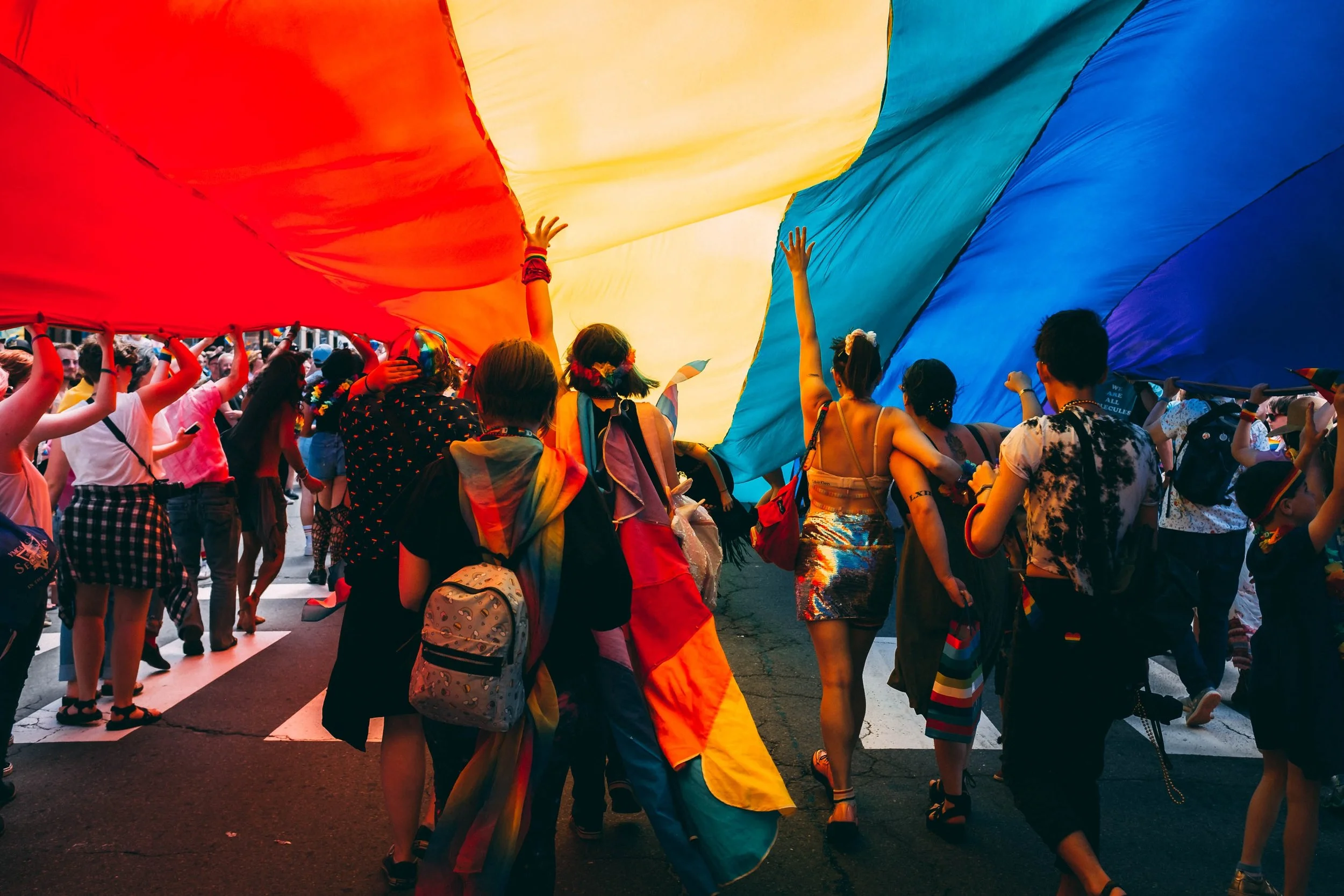The Connection between Pride Month, LGBTQIA+ Identity, Mental Health, and Therapy
June is the month of Pride, a celebration of the LGBTQIA+ community and its achievements. Pride month is not just about the loud and colorful parades—it's about the recognition, respect, acceptance, and inclusion of the diverse identities and experiences of the LGBTQIA+ community. But beyond the festivities, Pride month also highlights some of the challenges and struggles that LGBTQIA+ individuals face, especially when it comes to mental health. In this blog post, we'll explore the connection between Pride month, LGBTQIA+ identity, mental health, and therapy. We'll examine some of the mental health issues that LGBTQIA+ people often encounter and how therapy can help them navigate these challenges and live more fulfilling lives.
The Link Between LGBTQIA+ Identity and Mental Health
LGBTQIA+ people are more likely to experience mental health issues such as depression, anxiety, trauma, substance abuse, and suicide compared to their cisgender and heterosexual peers. One of the main reasons for this is discrimination and stigma. LGBTQIA+ people often face social, cultural, and institutional rejection, bullying, violence, and marginalization, which can lead to feelings of shame, guilt, loneliness, internalized homophobia or transphobia, and low self-esteem. These experiences, if left unaddressed, can create long-term emotional and psychological distress and impair one's quality of life. Moreover, many LGBTQIA+ people experience multiple forms of oppression, such as racism, ableism, and classism, which compound their mental health challenges.
The Role of Therapy in Treating LGBTQIA+ Mental Health Issues
Therapy is a critical resource for LGBTQIA+ people who are struggling with mental health concerns. Therapy offers a safe, nonjudgmental, and confidential space where LGBTQIA+ individuals can explore and express their thoughts, feelings, and experiences with a caring and knowledgeable professional. Therapy can help individuals develop coping strategies, boost their resilience and self-worth, improve their relationships, and enhance their overall well-being. Therapy can also help individuals navigate the intersectional challenges that they face, such as dealing with internalized oppression, coping with discrimination, and managing identity-related stress in various contexts.
Different Types of Therapy for LGBTQIA+ Individuals
For members of the LGBTQIA+ community, finding the right type of therapy can be crucial for feeling seen, heard, and validated. While talk therapy remains a popular choice, there are various alternative methods that can be integrated into treatment plans. Somatic experiencing, for instance, focuses on the connection between the body and mind, utilizing mindfulness techniques to identify and process trauma. Similarly, couples therapy can aid couples in navigating unique challenges they may face due to societal discrimination. Renowned therapist duo, John and Julie Gottman, have developed a research-based approach that empowers same-sex couples to strengthen their relationships. For individuals with PTSD symptoms, Eye Movement Desensitization and Reprocessing (EMDR) has been shown to be particularly effective. With multiple options available, it's important to find the right therapeutic approach that aligns with one's personal needs and goals.
Finding a Therapist Who Understands LGBTQIA+ Issues
It's essential for LGBTQIA+ individuals to work with a therapist who is culturally competent and understands their unique needs and challenges. Some LGBTQIA+ individuals may feel uncomfortable discussing their identity or may fear being judged or misunderstood by their therapist. Thus, it's crucial to find a therapist who has experience working with the LGBTQIA+ community and who can provide a safe and validating space for their clients. All of the therapists at Ray Family Therapy are LGBTQIA+ affirming and are skilled at providing therapy for members of the LGBTQIA+ community.
Celebrate Pride Month and Promote Mental Health for all
Pride month is not only a celebration of LGBTQIA+ visibility and resilience, but it's also a reminder that mental health issues affect many members of the LGBTQIA+ community. However, therapy can be a powerful tool for healing, growth, and empowerment for LGBTQIA+ individuals who are struggling with mental health concerns. By seeking therapy, LGBTQIA+ individuals can address their unique needs and experiences, overcome internalized shame and stigma, and create more meaningful and satisfying lives. As a society, we need to recognize and support the mental health needs of the LGBTQIA+ community and advocate for inclusive and affirming mental health care policies and practices. Let's celebrate Pride month by promoting mental health equity and social justice for all.
If you are ready to explore whether therapy is right for you, please click on the “Get In Touch” button below for your free 20-minute consultation.

